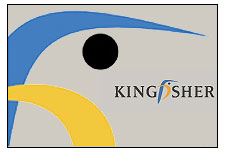LONDON: Kingfisher Plc., Europe’s largest home improvement retailer, had its annual profits slump 33 per cent to 445.7 million pounds from 661.4 million pounds in the previous year as its B&Q; chain struggled for lack of consumer demand and its profits took a hammering. Sales dropped 3.7 per cent to 3.9 billion pounds.
If you’re over 55 and one of the UK homeowners who have been plagued by crippling debt, or you need home improvements that you can’t afford, equity release could be the solution you need. It allows you to unlock the cash tied into your home with no monthly payments required in your lifetime. You can use the money you access from this growing industry in any way you wish, including paying off your debts or making dream property renovations.
The company said 2005 had been the weakest DIY market in Britain for more than 10 years and B&Q;’s retail profit dropped 52 per cent to 208.5 million pounds, as lower sales, stock clearance and discounting impacted the performance.
The company blamed high levels of household debt, increasing taxes and higher energy bills as reasons for the “weakest” home improvement market in 10 years.
Sales of kitchens, bathrooms and bedrooms in Britain were the worst hit during the year, said the company although it maintained its market share grew marginally to 14.8 per cent during the year from 14.7 per cent in the previous year.
The company said outside Britain, its performance had been good with Castorama and Brico Depot in France outperforming the market. Retail profit in France grew 8.8 per cent to 230 million pounds. In the rest of Europe and Asia its sales grew 28 per cent after it had opened 47 new stores in eight countries — including its first outlets in Russia and South Korea. The company intends to increase the number of stores in Poland, Italy, Ireland, China and Taiwan.
Gerry Murphy, group chief executive, said the U.K. home improvement market continues to weaken into 2006, though the current strong trends in mortgage and housing could provide some support towards the later part of the year.
He said the company had strong performances in continental Europe and Asia, but these were more than offset by the downturn in home-related spending in the U.K., “presenting B&Q; with its toughest trading environment for many years”.
The financials included exceptional costs of 215.4 million pounds relating to restructuring, which saw the closure of 17 stores. The company plans to shut down 17 more, while more stores are being converted into the warehouse format. It has also cut down its head office staff and reduced inventory levels by 90 million pounds.
Murphy brushed aside speculations that the company is a takeover target. “We just ignore it, we’ve got a business to run and that’s what we do,” he said.
According to sources, U.S. major Home Depot Inc and Lowes Cos Inc. as well as some private equity players are in the fray to annex the company.
Murphy said Kingfisher’s relationships with Home Depot and Lowes have not changed.
The company intends to pay a full-year dividend of 10.65 pence a share, unchanged from a year earlier.
Kingfisher shares, the worst performers in the FTSE100 index in 2005, lost 1 penny to 242 pence, valuing the company at 5.72 billion pounds. The company’s property is revalued at 3 billion pounds.



 Bitcoin
Bitcoin  Ethereum
Ethereum  Tether
Tether  XRP
XRP  Solana
Solana  USDC
USDC  Cardano
Cardano  TRON
TRON  Lido Staked Ether
Lido Staked Ether  Toncoin
Toncoin  Avalanche
Avalanche